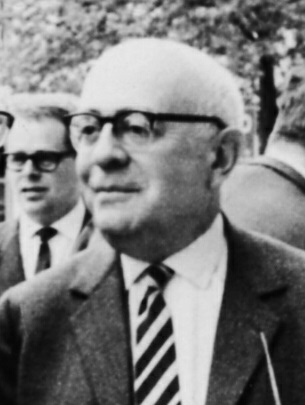Obras
Minima Moralia
Theodor W. AdornoDialética Negativa
Theodor W. AdornoTheodor W. Adorno Frases famosas
Indústria Cultural e Sociedade
“Para a felicidade se aplica o mesmo que para a verdade. Alguém não a tem, mas está nela.”
citado em "Frases Geniais" - Página 13, de PAULO BUCHSBAUM - Editora Ediouro Publicações, ISBN 8500015330, 9788500015335
Citações de arte de Theodor W. Adorno
“Há alguma evidência de que a dignidade da arte depende do tamanho do interesse dos que admiram.”
manches spricht dafür, daß die Dignität der Kunstwerke abhängt von der Größe des Interesses, dem sie abgezwungen sind
Ästheische Theorie - Página 24, Theodor W. Adorno, Suhrkamp, 1970
“A arte é uma magia que liberta a mentira de ser verdadeira.”
Variante: A arte é a magia libertada da mentira de ser verdadeira.
Indústria Cultural e Sociedade
Citações de homens de Theodor W. Adorno
“O humano estabelece-se na imitação: um homem torna-se um homem apenas imitando outros homens.”
Fonte: "Minima Moralia, II"
Theodor W. Adorno frases e citações
Variante: A decadência da oferta espelha-se na penosa invenção dos artigos para presente, que já pressupõem o facto de não se saber o que presentear porque, na verdade, não se tem nenhuma vontade de fazê-lo.
Indústria Cultural e Sociedade
Indústria Cultural e Sociedade
"Fonte: "Dialética Negativa"
"Fonte: "Dialética Negativa"
"Fonte: "Dialética Negativa"
"Fonte: "Minima Moralia"
Theodor W. Adorno: Frases em inglês
Section 10
Culture Industry Reconsidered (1963)
Contexto: The phrase, the world wants to be deceived, has become truer than had ever been intended. People are not only, as the saying goes, falling for the swindle; if it guarantees them even the most fleeting gratification they desire a deception which is nonetheless transparent to them. They force their eyes shut and voice approval, in a kind of self-loathing, for what is meted out to them, knowing fully the purpose for which it is manufactured. Without admitting it they sense that their lives would be completely intolerable as soon as they no longer clung to satisfactions which are none at all.
Fonte: On the Fetish Character in Music and the Regression of Listening (1938), p. 273
Fonte: On the Fetish Character in Music and the Regression of Listening (1938), p. 290
E. Jephcott, trans. (1974), § 1
Minima Moralia (1951)
Contexto: The son of well-to-do parents who … engages in a so-called intellectual profession, as an artist or a scholar, will have a particularly difficult time with those bearing the distasteful title of colleagues. It is not merely that his independence is envied, the seriousness of his intentions mistrusted, that he is suspected of being a secret envoy of the established powers. … The real resistance lies elsewhere. The occupation with things of the mind has by now itself become “practical,” a business with strict division of labor, departments and restricted entry. The man of independent means who chooses it out of repugnance for the ignominy of earning money will not be disposed to acknowledge the fact. For this he is punished. He … is ranked in the competitive hierarchy as a dilettante no matter how well he knows his subject, and must, if he wants to make a career, show himself even more resolutely blinkered than the most inveterate specialist. The urge to suspend the division of labor which, within certain limits, his economic situation enables him to satisfy, is thought particularly disreputable: it betrays a disinclination to sanction the operations imposed by society, and domineering competence permits no such idiosyncrasies. The departmentalization of mind is a means of abolishing mind where it is not exercised ex officio, under contract. It performs this task all the more reliably since anyone who repudiates this division of labor—if only by taking pleasure in his work—makes himself vulnerable by its standards, in ways inseparable from elements of his superiority. Thus is order ensured: some have to play the game because they cannot otherwise live, and those who could live otherwise are kept out because they do not want to play the game.
Section 14
Culture Industry Reconsidered (1963)
Contexto: The power of the culture industry's ideology is such that conformity has replaced consciousness. The order that springs from it is never confronted with what it claims to be or with the real interests of human beings. Order, however, is not good in itself. It would be so only as a good order. The fact that the culture industry is oblivious to this and extols order in abstracto, bears witness to the impotence and untruth of the messages it conveys. While it claims to lead the perplexed, it deludes them with false conflicts which they are to exchange for their own. It solves conflicts for them only in appearance, in a way that they can hardly be solved in their real lives.
“Art is magic delivered from the lie of being truth.”
Kunst ist Magie, befreit von der Lüge, Wahrheit zu sein.
E. Jephcott, trans. (1974), § 143
Minima Moralia (1951)
Fonte: Metaphysics: Concept and Problems
“The darkening of the world makes the irrationality of art rational: radically darkened art.”
Fonte: Aesthetic Theory
Fonte: Wozu noch Philosophie? [Why still philosophy?] (1963), p. 10
Fonte: Wozu noch Philosophie? [Why still philosophy?] (1963), p. 6
Fonte: Wozu noch Philosophie? [Why still philosophy?] (1963), p. 9
Culture Industry Reconsidered (1963)
Fonte: Lectures on Negative Dialectics (1965-66), p. 23
Furchtbares hat die Menschheit sich antun müssen, bis das Selbst, der identische, zweckgerichtete, männliche Charakter des Menschen geschaffen war, und etwas davon wird noch in jeder Kindheit wiederholt.
E. Jephcott, trans., p. 26
Dialektik der Aufklärung [Dialectic of Enlightenment] (1944)
“The straight line is regarded as the shortest distance between two people, as if they were points.”
Nun gilt für die kürzeste Verbindung zwischen zwei Personen die Gerade, so als ob sie Punkte wären.
E. Jephcott, trans. (1974), § 20
Minima Moralia (1951)
Section 14
Culture Industry Reconsidered (1963)
